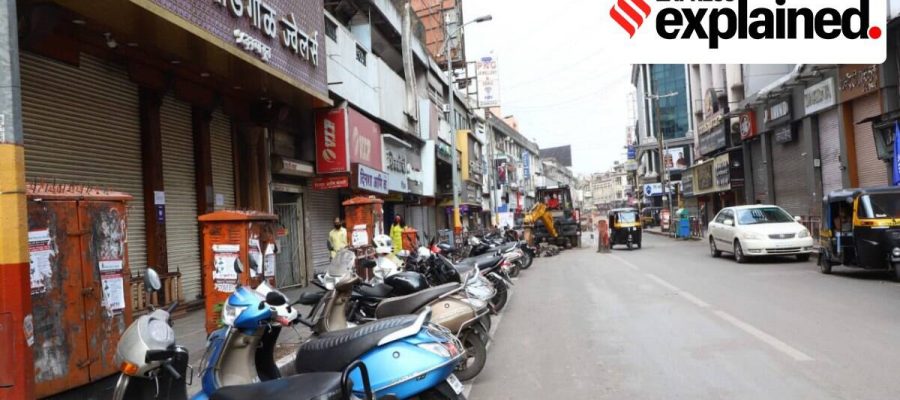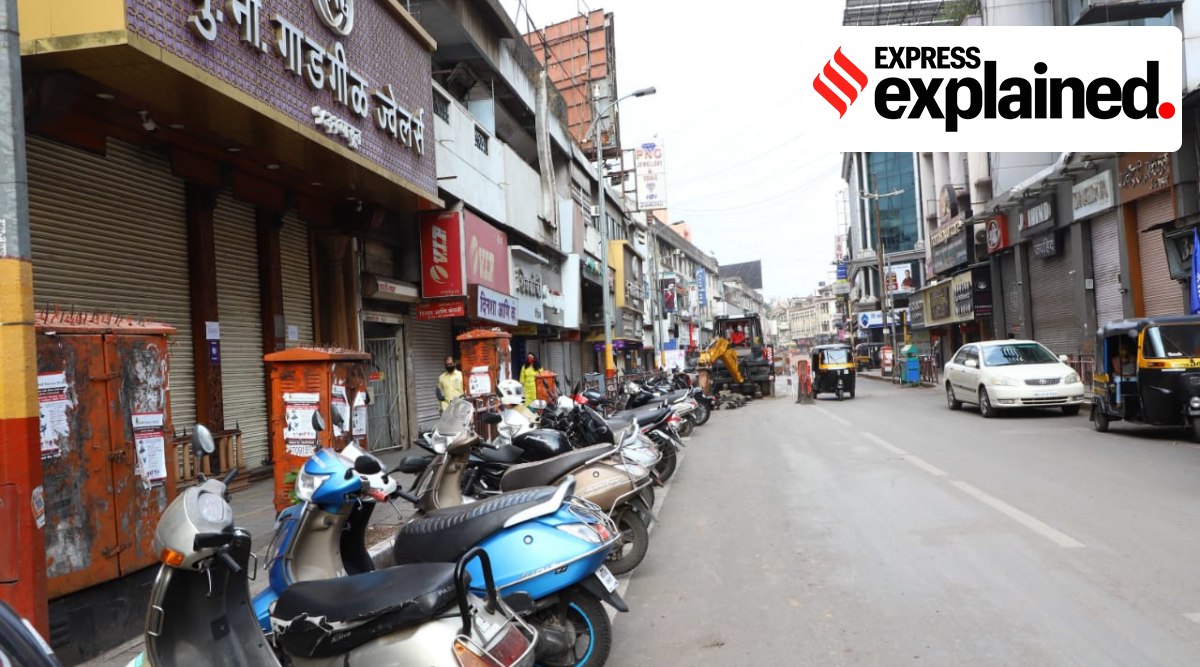The state government has allowed the services of the essential and exemption categories to function by following certain measures.
Thursday was the first full day of curfew-like restrictions across Maharashtra. The curfew came into force 8 pm April 14 and will remain on until May 1, aimed at breaking the fast-spreading chain of coronavirus in the state. However, the state government has allowed the services of the essential and exemption categories to function by following certain measures.
What are the essential services that are allowed to remain open?
This includes hospitals, diagnostic centres, clinics, vaccinations, medical insurance offices, pharmacies, pharmaceutical companies, other medical and health services among others.
Groceries, vegetable shops, fruit vendors, dairies, bakeries, confectionaries and all type of food shops can remain open. Public transport such as airplanes, trains, taxis, autos and public buses are allowed. Transport of goods, export-import of all commodities and E-commerce (only for supply of essential goods and services) are also operational.
The water supply services, the services required for restoration/maintenance of telecom services, electric and gas supply services, ATMs, postal services and petrol pumps and petroleum-related products, government and private security services are allowed.
It also includes agriculture-related activities and all allied activities required to ensure seamless continuity of the agricultural sector. Services such as veterinary services/animal care shelters and pet food shops are allowed too.
The state government order also said that pre-monsoon activities and all public services by local authorities are allowed. “Any services designated as essential services by local disaster management authority,” said the order.
The order further said that the incidental activities of these services can be treated as essential and can remain open. “Incidental activities that are required for performance of these services by concerned personnel or organisation are to be considered as essential themselves. Principle is ‘essential for essential is essential.’” stated the order.
What are the services allowed in exemption categories?
Offices of the central, state and local governments and their statutory authorities and organisations, cooperative, PSU and private banks, offices of companies providing essential services, insurance/mediclaim companies, pharmaceutical company offices, RBI regulated entities and intermediaries, all non-banking financial corporations with others can remain open with 50 per cent capacity.
Private vehicles including private buses can ply for the purpose of emergency, essential services or for valid reasons.
Restaurants and bars have to be closed for in-dining but can be open for in-house guests. Only home delivery services are allowed from restaurants. The parcels or home deliveries are allowed between 7 am to 8 pm every day from roadside eataries. But there will be no serving of food at the location.
For the manufacturing sector, all units that manufacture items needed for essential services to remain operational with full capacity. However, the units that have processes that cannot be stopped immediately or cannot restart without considerable time requirement may continue with maximum of 50% of workforce at any given point of time. It is expected that these industries will try to house their labourers on campus or at an isolated facility from where movement may happen in an isolated bubble.
What are the services that will remain shut?
Cinema halls, drama theatres and auditoriums, amusement parks, video game parlours, water parks, clubs, swimming pools, gyms and sports complexes will remain closed. Shootings for films, serials and advertisement are also not allowed.
Public places like beaches, gardens, open spaces etc shall remain closed.
All shops, malls, shopping centres not performing essential services shall be closed. So will barber shops, spas, salons and beauty parlours.
All schools and colleges shall remain closed. Religious places of worship will also remain closed. No religious, social cultural or political functions of any kind will be allowed in the said time.
However, maximum of 25 people are allowed for marriages and a maximum of 20 people for funerals.
Powers with local bodies
The state has left it to the local district management authorities to decide on the inclusion of domestic help, drivers, attendants to work or any other services in the exceptions category to be taken based on local conditions.
It has further asked the local authorities to take a call on staggering the essential services such as groceries, vegetable shops, fruit vendors, dairies, bakeries, all type of food shops, in terms of location and operation if they are densely located or people are expected to gather in large numbers.
“All enforcing authorities to note that fundamentally strict restrictions relate to movement of people and not to goods and commodities as a matter of principle,” it stated.
Source: Read Full Article


